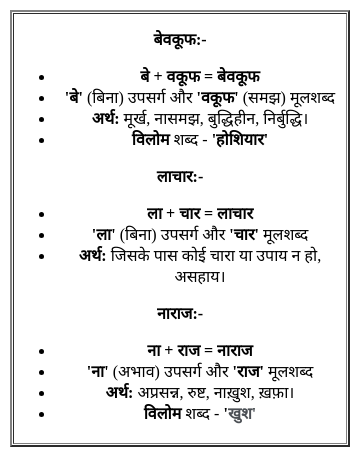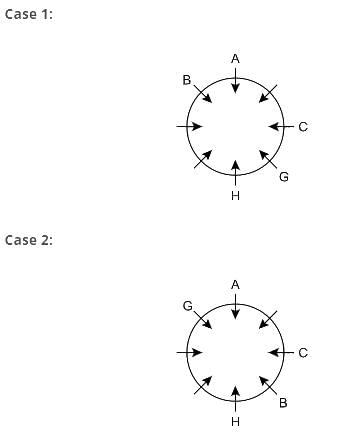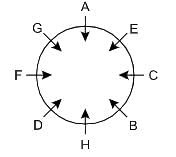HTET TGT Social Studies Mock Test - 10 - HTET MCQ
30 Questions MCQ Test - HTET TGT Social Studies Mock Test - 10
You have recently cleared your teachers' entrance test and have been called for an interview. The interviewer asks you what effective teaching exactly refers to. What would you say?
Phonological awareness refers to the ability to:
Which one of the following is an example of a learning style?
'रोहन गाना जाता है' रचना के आधार पर वाक्य भेद बताइए।
'वह नहीं चाहता कि तुम्हारे साथ पढ़े' रचना के आधार पर वाक्य भेद बताइए।
Directions: In each of the following questions, a sentence has been given in Active (or Passive) Voice. Out of the four alternatives suggested, select the one that best expresses the same sentence in Passive/ Active Voice.
All the examinees have answered one particular question in the long answer writing section.
Direction: A word in capital letters is followed by four words. Choose the word that is most nearly opposite in meaning to the word given in capital letters.
PREDILECTION
Find out the Synonym of the following word:
AUGUST
80 men can complete a work in 40 days and 50 women can complete the same work in 40 days. If the efficiency of each man is the same and the efficiency of each woman is also the same, the efficiency of each man is what percentage of the efficiency of each woman?
A student multiplied a number by 4/5 instead of 5/4. What is the percentage error in the calculation?
'Dress' is related to 'Body' in the same way as 'Bangles' is related to:
Direction: Study the following information carefully and answer the given questions besides.
Eight person A, B, C, D, E, F, G and H sit around the circular table facing towards the centre but not necessarily in the same order.
G sits opposite to B. One person sits between A and C, who sits second to the right of H. Both G and B do not sit immediate left of H. D sits second to the left of B. A doesn’t sit beside D. E doesn’t face C.
What is the position of G with respect to C?
Directions to Solve
In each of the following questions find out the alternative which will replace the question mark.
Question -
3 : 12 :: 5 : ?
What is a key recommendation to reduce the reliance on informal sources of credit in India?
An industrial system related to the Bakery industry is given below. Which one among the following options is the correct one?
When we produce a good by exploiting natural resources, it is an activity of the:
What was important about Shravasti in Buddhist history?
1. It was ruled by Pasenadi, who was a disciple of Buddha.
2. The famous Jetavana Vihara is situated here.
3. It hosted the first sermon of Buddha.
Select the correct answer using the codes below.
Technological development relates to ______.
What is the meaning of the word ‘brahman’ in the Rig Vedic period?
National Education Policy (NEP) 2020 recommends the study of classical languages as ________.
Which mountain range separate Europe from Asia
Statement 1: The United Front government was a coalition of approximately 13 different political parties.
Statement 2: The coalition was led initially by I.K. Gujral.


























